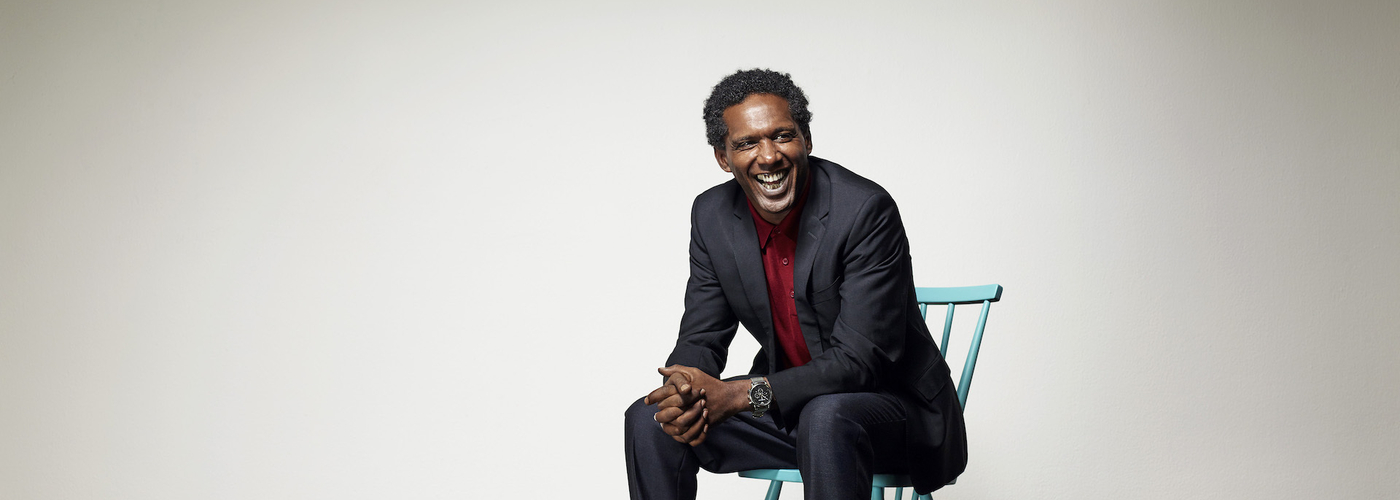The poet discusses his new book, My Name Is Why
Lemn Sissay is a busy man. Chancellor of the University of Manchester, presenter of a BAFTA-nominated documentary, poet, playwright and general force of optimism on social and mainstream media, he has a lot on his plate and I'm lucky to pin him down for a chat about his new book, My Name is Why. Part memoir, part social investigation, My Name is Why recounts the poet’s early life with a foster family and six years in care homes before being presented with his birth certificate as he left the care system. It was then that Lemn discovered his true name was not Norman but Lemn (which means 'why' in Amharic) and, harrowingly, he learned that his mother had been pleading for his safe return to her since his birth.
Lemn requested his files from Social Services but was told they had been lost. Then, four years ago, Wigan Council got in touch and told Lemn they had found his files. They offered him an apology but Lemn wanted more. He sued the Council and won, but the case was just the beginning of a journey of self-discovery that produced poetry, a play staged at the Royal Theatre and now a book.
There are a certain amount of stars that have aligned over myself and Manchester
Since then he has been lauded, awarded and even given a blue checkmark on Twitter (where he regularly posts short poems and has a devoted following). Mancunians will be familiar with his work even if they are not familiar with the man. Who can forget stomping over These Pavement Cracks on the way to Afflecks?
Earlier this year, while on a trip to Ethiopia (the country of his mother's birth), Sissay learned he had been awarded the PEN Pinter Prize. The prize is awarded to writers who cast an ‘unflinching, unswerving’ gaze upon the world and show a ‘fierce intellectual determination ... to define the real truth of our lives and our societies’. There is no better description of his new book.
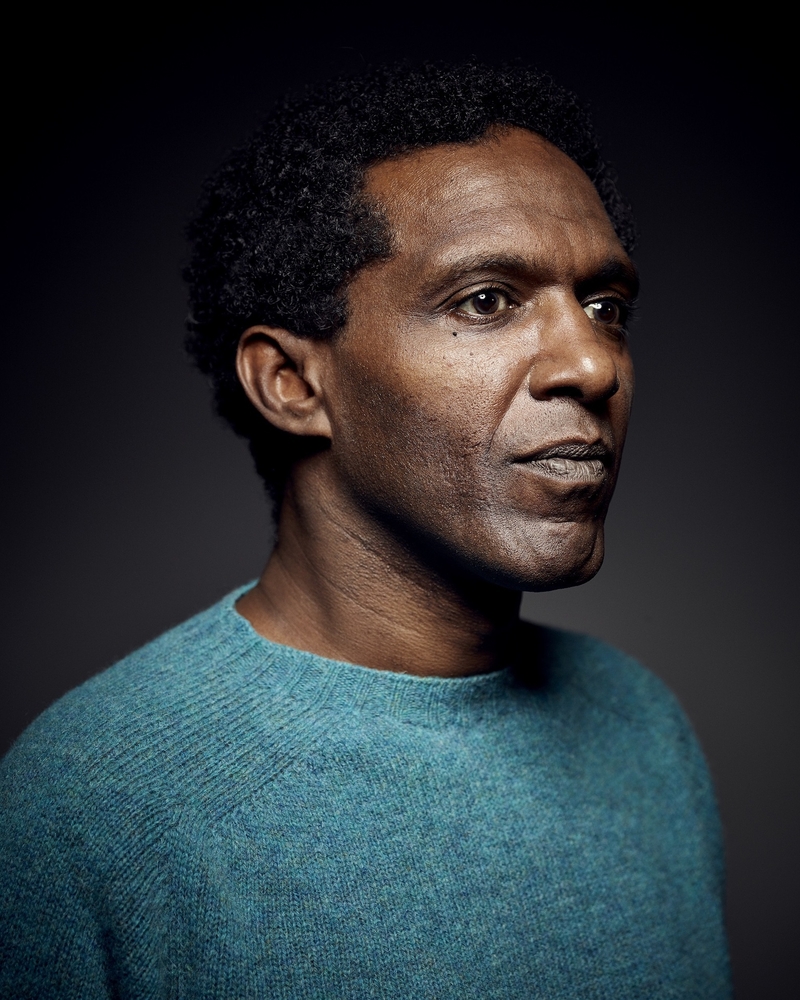
You're just on your way to another reading. How do you get so much done?
LS: I do what I love and I love what I do. That’s brilliant. And I feel very lucky to be able to say that, and I never take it for granted. No interview is taken for granted. I don’t feel like I’m on a hamster wheel. I believe in this book and it’s very important to me.
It sounds like a lot of other people believe in it as well. You’ve had a lot of endorsements and glowing reviews.
LS: The first person who gave me feedback was (actress) Jessica Hynes. She read it and she wrote to the publishers, and she wrote to me and I was just blown away by the reaction. I called her up to say ‘thank you, this just means so much to me that you’ve seen me. You literally read me.’ And then others came in. Matt Haig wrote about it and said it was unputdownable. And then Helena Kennedy QC, Lenny Henry, I’m really proud of that tweet of him reading the book because obviously he’s in the book…
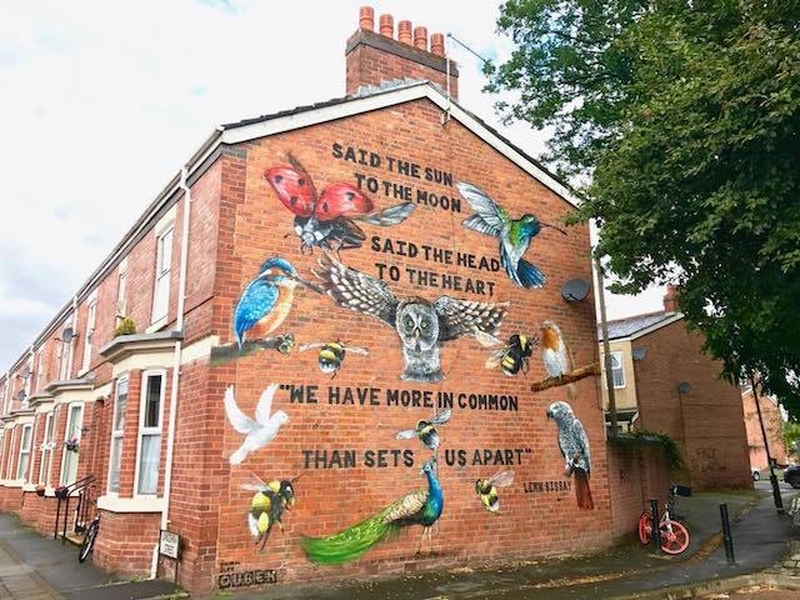
That’s a lot of people responding to something deeply emotional.
LS: The story is emotional. It is like if you watch a horror film. If it’s a good film, you’ll feel elated if the person comes through it. My book has a radical vulnerability. That means: show the truth. Show it for what is, don’t make judgments, tell the story. I didn’t want them to get away with what they did. I’ve forgiven them, but there is no one to protect. Because they never cared in the first place. And that is really sad but it is true.
Getting the files made me say: I want to take the government to court and then I’m going to write a book. And that’s exactly what I did. I had no choice but to look at the records. The legal case in many ways helped me to look at them. Can you imagine looking at files your mum or dad had written about you? It would totally freak you out. That’s what the reader goes through – the hear me tell the story and then they look at the files, and chins drop on the floor.
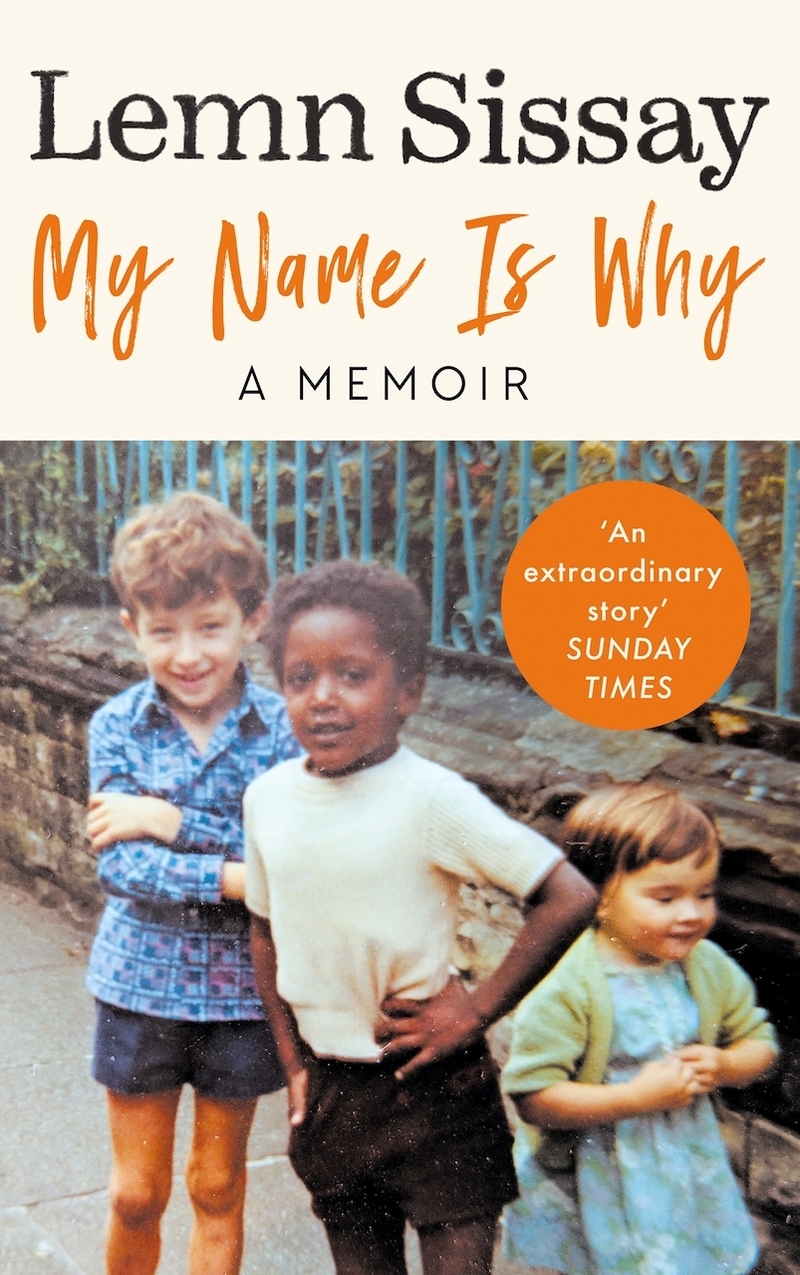
In the book you challenge quite a lot of the ideas we have about adoption.
LS: I do believe in adoption by the way. But the worst thing an adoptive parent can say to a child is that your mother didn’t want you. There is no way that a woman who has had a child grow inside her has not experienced love for that child. And if a woman gives away a child for a better life that is the greatest example of heroism our society. And yet our society views the women who do give their children for adoption as toxic. The easiest thing to do is to blame the mothers. And we do it without question. It leads to all kinds of loneliness: ‘She hated you. She didn’t want you.’ It’s a prejudice that has grown out of a dislike for women who are in need of help and the same prejudice is applied to children in care. All these unquestioned prejudices that run right through our society and which only serve to hurt children who’ve been fostered or adopted.
This is a good point to ask you about the Christmas Dinner project.
LS: Oh my god, the Christmas Dinner Project is the best thing that I’ve initiated in my life. Basically the primary purpose is that care leavers just get to have a nice day and are served by the wider community. They get great food, they get a present, they get picked up and dropped off and it’s just the most inspiring thing. In Manchester, there are about 15 people who will meet between now and Christmas day to put on this family Christmas Dinner, and there were 17 of these dinners last year all over the country. And I think there are going to be more this year. The University of Manchester have been really central in the Manchester group for the venue and all kinds of stuff.
Do you see yourself as a representative for care leavers?
LS: No I don’t. I don’t want to be. If other people choose me as someone who is inspiring or who is trying out new ideas that’s great but I don’t put myself forward as that. I lead by example but I want other people to lead by example too. I don’t want to be out here on my own.
The book reveals that you didn’t get to go to university and now you are the Chancellor of the University of Manchester.
LS: A year before I became Chancellor, the University - through Nancy Rothwell - asked if I would accept the honour of a doctorate. Seven months later, the students asked me, would I run for Chancellor of the University of Manchester? I looked at my credentials and the fact that I’ve grown up in Manchester, that I visited and performed at the University in so many departments over the years, going back to being 18. So I thought, yes I’m going to run for it. And when I became Chancellor at Foundation Day, constitutionally, I was supposed to give myself the doctorate. That’s is the first time that’s happened in the history of the University and no-one knew what to do. So I ended up getting it from Jeanette Winterson, who grew up in a very similar situation to me.
Some people might take that success as a sign that if you can do it, anyone can, and that there aren’t any barriers to children from a care background succeeding in life.
LS: Everybody can be in the position that I am. The most important thing about university for me is that you have the choice. So it’s ok by me if you don’t go to university, that’s your path, it’s no better or worse than somebody who has gone. However, did you have a choice? As somebody who didn’t go to university and didn’t have that choice, that is what is important to me, that you have that choice. I came into this chancellorship to inspire and to be inspired, and that happens almost daily.
There are a certain amount of stars that have aligned over myself and Manchester, that have allowed me this position. I’m wedded to this city. I’m proud of the university’s record of having social responsibility as one of its three core goals. Manchester is what gave me wings. The whole idea of being from somewhere means you can travel anywhere in the world and you take it with you. Don’t ever think that you have to live in Manchester to love Manchester. You don’t lose it. I’m here once a week on average but I feel like I have a city as my home, as my family. I’m tattooed into its arms.
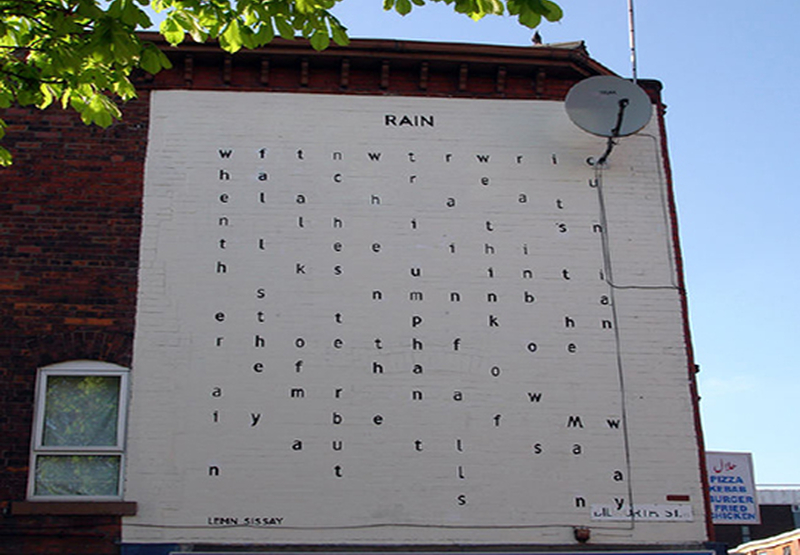
If you have your eyes open you’ll see Lemn Sissay poems all around Manchester. My favourite is Rain, on the side of the Gemini takeaway.
LS: I’m proud of Rain because it just takes a minute for it to click how it’s laid out and then you can enjoy it. And there is another on in Old Trafford...
The one with the birds?
LS: Yes they came up with those birds. They went round all the houses in that area of Old Trafford and asked people what are the birds where you are from? So you have birds from Jamaica, Ukraine, it’s beautiful.
The idea of poems in public spaces was started in 1994, when the poem went on the side of Hardy’s Well pub in Rusholme. Nobody was doing it then. It wasn’t part of a contemporary poet's experience. Then Sheffield had the Off The Shelf Festival and more were put in Manchester and now it’s part of a poet’s arrival to have a poem in a public space. So now poems are tattooed all over the city…
And tattooed on people as well.
LS: Yes, someone’s got the Mancunian Way, and someone else has a poem called Love Poem tattooed on their wrist. They never put my name on though!
My Name Is Why by Lemn Sissay is out now (Canongate, £16.99). As part of his book tour, Lemn will be appearing at The Met in Bury on Thursday 26th September and at Manchester Literature Festival on Wednesday 16th October.
If you are interested in helping out with the Christmas Dinner, have a look at the Facebook page or email: hosts@thechristmasdinner.org.uk





